Speakers
Who should attend?
Scientists and researchers
Industry executives
-
Governmental and foundation program officers and decision makers
Five reasons to attend:
Meet scientific leaders from the Delaware region and international Fraunhofer experts.
-
View scientific posters and discuss the experts' latest research.
Exhibit/share your own scientific findings in a poster presentation.
-
Use the spacious conference setting for face-to-face networking.
-
Customize your conference. Visit exactly the session you are most interested in.
Interested? Questions?
Keynote Speakers

Life Sciences: Douglas Muzyka, Senior Vice President and Chief Science & Technology Officer, DuPont
"Life Sciences Addressing Global Challenges"
Douglas Muzyka is senior vice president and chief science and technology officer at DuPont. He joined the company in 1985 as a research scientist and held a variety of research and research management roles in North America through 1994. He was named director of Technology and New Business Development for DuPont Nylon, Asia Pacific, in 1994 and relocated to Hong Kong. From 1994 to 1998, he participated in many plant startups and new venture developments throughout Asia Pacific.
In 1998, Muzyka relocated to the United States to become global business director for the Nylon Industrial Specialties business, a position he held until January 2001. He was then named president and general manager of DuPont Mexico. He was named president and chief executive officer of DuPont Canada Inc. in January 2003 and concurrently vice president and general manager – DuPont Nutrition & Health in September 2003. In July 2006, he returned to Asia assuming the role of president – DuPont Greater China. He was named to his current position in September 2010.
Muzyka has served on advisory boards for universities in Singapore and Canada, as well as on boards of chambers of commerce, industry associations and business councils on sustainable development in Canada, Mexico and China. Muzyka was born in Canada and graduated as class valedictorian from the University of Western Ontario with bachelor, master and doctorate degrees in chemical engineering. He completed additional research for his doctorate at the Université de Technologie de Compiègne in France and worked as a researcher in the coal industry in France prior to joining DuPont.
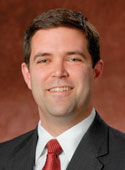
Energy: Lee Davis, Senior Vice President and Regional President, East, NRG Energy Inc.
"From Fossil to Photons: An Energy Company's Transformation"
Lee Davis serves as senior vice president and regional president, East, overseeing commercial and operating activities and business development for NRG's largest region by generating capacity. With almost 22,000 megawatts of generating assets in the region, he is responsible for leading efforts to maximize the value of existing units, repower generating sites with more efficient units, reduce emissions from the region’s fossil-fueled plants and build new clean energy resources. Davis joined NRG in 2006 as vice president, New York Development, and took on the expanded role of vice president, Northeast Business Development, in January 2010. Prior to his current position at NRG, he took on various roles as a vice president for Mirant Corp. and as Vice President of Strategic Origination at Calpine Corp. Davis has a bachelor’s degree from the Georgia Institute of Technology.
Plenary Speakers
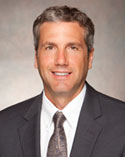
Session A.1: John Cantello, Vice President, Worldwide Business Development, GlaxoSmithKline
"Step Ahead Together: Creative Collaborating as an Approach to Building and Sustaining a Pharma R&D Pipeline"
As vice president of worldwide business development in GlaxoSmithKline's R&D organization, John Cantello leads the business development activities for the Metabolic Pathways and Cardiovascular Therapy Area and the newly created Bioelectronics R&D. Previously, he was the vice president of global new deal strategy and development for a virtual R&D business unit called the Center of Excellence for External Drug Discovery. He received his Ph.D. in molecular virology from the University of Delaware and postdoctoral training in gene therapy at the California Pacific Medical Center in San Francisco.
Cantello has been with GSK for 11 years as a business development professional leading business transactions spanning most areas of R&D including enabling platform technologies (biology, chemistry, screening) to product candidates (preclinical to PhIII) representing all major disease areas and treatment modalities (small molecule, biologicals, gene therapies). He contributed to the early stages of creating GSK’s Rare Disease Unit by leading the transactional activities with Prosensa Therapeutics (portfolio of product opportunities for Duchenne muscular dystrophy) and Telethon Institute of Gene Therapy (portfolio of lentivirus based gene therapies for several genetic rare diseases). Other notable transactions include Astex Therapeutics, Chroma Therapeutics, Concert Pharmaceuticals, Targacept Inc., and Praecis Pharmaceuticals transactions, the latter of which resulted in an acquisition by GSK in 2007. Prior to joining GSK, he was employed by other large pharmas (Bristol-Myers Squibb), mid-size biopharmaceutical (Regeneron Pharmaceuticals) and venture-backed start-up biotech companies (Morphochem AG; formerly Small Molecule Therapeutics, Inc.) where he held various roles of increasing responsibility that spanned drug discovery, project management and business development.

Session A.2: Jürgen Drossard, Fraunhofer Institute for Molecular Biology and Applied Ecology, IME, Aachen, Germany
Jürgen Drossard's primary responsibility is the coordination and supervision of the QC/QA activities within the GMP-unit at the institute, a position he's held since 2005. Drossard holds a Ph.D. in Biology from RWTH Aachen University. His graduate work, from 1996–2000, as a member of Rainer Fischer’s work group at the Institute of Botany and Molecular Genetics, was focused on the downstream processing of recombinant proteins, in particular antibodies and antibody fragments, from transgenic plants and plant cell cultures. For his postdoctoral work, he moved to Fischer’s newly established Institute of Molecular Biotechnology at the RWTH, before joining the IME in 2004. In addition to his function in IME's Quality Unit, Drossard is co-heading the Integrated Production Platforms Department at the IME and, thus, still has a close affiliation to biopharmaceutical protein production, notably DSP.
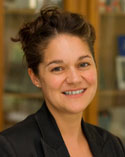
Session A.3: Zoe Waibler, Head of Research Group, Paul-Ehrlich-Institute, Langen, Germany
"From Bedside to Bench: TGN1412"
Zoe Waibler, research group head at Germany's Paul-Ehrlich-Institut (PEI), shares this information about her current research focus — Type I interferons, which are known as pro-inflammatory cytokines essential for the survival of the host upon a variety of infections. Her research group is interested in how interferons are induced and regulated upon certain viral infections and which strategies viruses developed to escape type I interferon responses. Unexpectedly, the team also observed anti-inflammatory effects mediated by type I interferons: In the absence of a functional type I interferon system, the injection of artificial double-stranded RNA induces severe inflammation-associated liver damage which is not detectable in wild-type mice.
The PEI research group is investigating how type I interferons mediate protective anti-inflammatory effects, particularly in the liver. In 2006, healthy volunteers experienced serious adverse events during a first-in-human clinical trial of the superagonistic monoclonal antibody TGN1412, which is directed against CD28 expressed on T cells. The team is studying molecular mechanisms contributing to TGN1412-mediated T cell activation and cytokine release as observed upon in vivo application of the antibody. Moreover, they are investigating "humanized mice" for their potential as pre-clinical models for testing novel immune concepts and reagents.
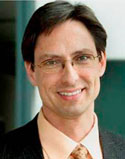
Session B.1: Christopher Hebling, Division Director, Energy Technology, Fraunhofer Institute for Solar Energy Systems, ISE, Freiburg/Breisgau, Germany
"Challenges and Solutions for a Renewable Energy Economy"
Christopher Hebling, the current director of the "Energy Technology" division, with 75 employees and about 5 M€ annual budget at the Fraunhofer Institute for Solar Energy Systems, studied physics at the University of Freiburg. He was the founder and head of the "Micro Energy Technology" Group at the Fraunhofer ISE and still coordinates this future topic. He is a board member of the Fuel Cell and Batterie Alliance Baden-Wuerttemberg and reviewer of national and international project proposals in the fields of fuel cell technology, solar energy and energy storage, respectively.
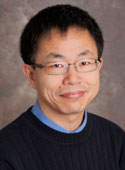
Session B.2: Yushan Yan, Distinguished Professor of Engineering, Department of Chemical and Biomolecular Engineering, University of Delaware
"Clean Energy: Flash without Flame"
Yushan Yan is Distinguished Professor of Engineering in the Department of Chemical and Biomolecular Engineering of the University of Delaware. He received his B.S. in chemical physics from the University of Science and Technology of China in 1988 and his Ph.D. in chemical engineering from the California Institute of Technology in 1997. He studied heterogeneous catalysis at the Dalian Institute of Chemical Physics of the Chinese Academy of Sciences from 1988 to 1992 and zeolite membranes at Caltech for his doctoral thesis work. He worked for AlliedSignal Inc. as senior staff engineer and project leader from 1996 to 1998 before joining the University of California at Riverside (UCR) as an assistant professor. He was promoted to associate professor in 2002 and professor in 2005. In 2006, he was selected as one of the five inaugural University Scholars at UCR. He was appointed department chair in 2008 and received the title of presidential chair in 2010. He moved to the University of Delaware in September 2011.
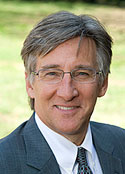
Session B.3: Michael Klein, Dan Rich Chair of Energy, Department of Chemical and Biomolecular Engineering, and Director, University of Delaware Energy Institute (UDEI)
"Infrastructure-Ready Biomass-Derived Oils: Incentives, Options and Process Models"
Michael Klein started his career at the University of Delaware, where he served as the Elizabeth Inez Kelley Professor of Chemical Engineering as well as department chair, director of the Center for Catalytic Science and Technology, and associate dean. He then moved to Rutgers, The State University of New Jersey, to become the dean of engineering and the Board of Governors Professor of Chemical Engineering. In 2010, he returned to UD to assume his present position as director of the University of Delaware Energy Institute and the Dan Rich Chair of Energy.
Klein is the author of over 200 technical papers and the lead author of Molecular Modeling in Heavy Hydrocarbon Conversions. He is active in research in the area of chemical reaction engineering, with special emphasis on the kinetics of complex systems. He is the editor-in-chief of the American Chemical Society (ACS) journal Energy and Fuels and has received the R.H. Wilhelm Award in Chemical Reaction Engineering from the American Institute of Chemical Engineers, the National Science Foundation Presidential Young Investigator Award and the ACS Delaware Valley Section Award. In 2011, Klein was elevated to the level of ACS Fellow.
Panel Moderators
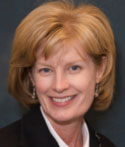
Panel Chair A.1: Robin Morgan, Professor of Animal and Food Sciences, University of Delaware
Robin Morgan served as dean of the College of Agriculture and Natural Resources from 2002 to 2012. Her interests center on the molecular biology of Marek's disease virus, a herpes virus that causes infectious T-cell lymphomas in chickens. Specific research projects include understanding the molecular mechanisms that lead to transformation of T-cells by Marek's disease virus, examining the immunological responses that result in vaccine-induced protection from lymphoma formation and developing vaccines to control Marek's disease. Recent work has focused on viral and host microRNAs.
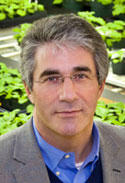
Panel Chair A.2: Vidadi M. Yusibov, Executive Director, Fraunhofer Center for Molecular Biotechnology, Delaware; and Research Professor, Biological Sciences, University of Delaware
Vidadi Yusibov, the executive director of the Fraunhofer USA Center for Molecular Biotechnology, is responsible for the oversight of all plant-based vaccine and therapeutics development programs. He has been involved in different aspects of plant molecular biology, including molecular farming, with a major focus on transgenic plants and plant viruses since 1985. He is recognized nationally and internationally as an expert in plant-based vaccine development. Yusibov is a research professor in biological sciences at the University of Delaware. Yusibov is a research professor in biological sciences at the University of Delaware. Before joining Fraunhofer USA, Yusibov was an assistant professor at Thomas Jefferson University.
His research has focused on the development of plant virus-based expression systems that can be used for different applications, including the production and delivery of vaccine antigens. He was involved in the development of different expression platforms, including the thermotool-based system that is proposed here as a production and delivery tool for vaccine candidates. While at Thomas Jefferson University, Yusibov developed a plant virus-based experimental vaccine against the rabies virus, which was approved by the FDA for human trials.
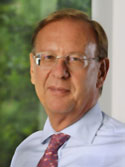
Panel Chair A.3: Uwe Heinrich, Executive Director, Fraunhofer Institute of Toxicology and Experimental Medicine, and Professor of Toxicology and Aerosol Research, Hannover Medical School
Uwe Heinrich is professor of toxicology and aerosol research at the Hannover Medical School, Germany, and director of the Fraunhofer Institute of Toxicology and Experimental Medicine. He received his degree in biology from the Eberhard Karls University in Tuebingen, Germany. In 1984, he became a lecturer in toxicology and experimental oncology at the Hannover Medical School and obtained the habilitation in experimental oncology at the same university in 1989.
At present, Heinrich is a Fellow of the Academy of Toxicological Sciences (U.S.), editor of the International Journal of Hygiene and Environmental Health (IJHEH), member of the HEI Research Committee, Health Effects Institute, U.S.A., and serves on various national and international committees.
His primary research interests are inhalation toxicology, environmental and occupational hygiene, risk assessment, and preclinical research. He has published more than 100 research articles and received the Kenneth Morgareidge Award for outstanding research in the area of inhalation toxicology in 1991.
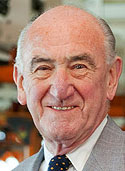
Panel Chair B.1: David Weir, Director, Office of Economic Innovation and Partnerships, University of Delaware
David Weir holds a doctorate in chemical physics and lectured at the University of St. Andrews in Scotland before beginning a 35-year career with DuPont. He is a former vice president for global research and development at DuPont and the founding director of the Delaware Biotechnology Institute.
In July 2008, Weir was asked to lead the Office of Economic Innovation and Partnerships (OEIP), a new initiative at the University of Delaware. OEIP's mission is to enable UD to be widely recognized as a center of invention, innovation and entrepreneurship, and through the development and deployment of the University's knowledge based assets, a contributor to economic development in the state and region.
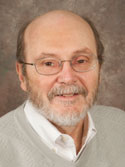
Panel Chair B.2: Robert Birkmire, Director, Institute of Energy Conversion, and Professor of Materials Science and Engineering, University of Delaware
Robert Birkmire is the director of the Institute of Energy Conversion, a U.S. Department of Energy Center of Excellence for Photovoltaic Research and Education, as well as professor of materials science and engineering with an affiliated appointment as professor of physics. He has been principal investigator on numerous government programs sponsored by DOE, DARPA, NASA, DOD and NIST for research on amorphous and polycrystalline thin-film solar cells and crystalline Si solar cells. This research also has been supported by BP Solar, DuPont, GE Energy, Global Solar, Konarka, Ascent Solar, SoloPower and Telio Solar.
Birkmire advises undergraduate and graduate students from the departments of Chemical, Electrical and Mechanical Engineering, Physics and Astronomy, and Materials Science and Engineering. His current research efforts focus on growth and characterization of thin-film semiconductors for photovoltaic and opto-electronic devices and the relationship of the growth process to film properties and device performance. He is actively involved in developing effective mechanisms to transfer laboratory results to commercial processes with particular emphasis on implementing model-based process control schemes using advanced sensor technologies.
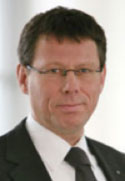
Panel Chair B.3: Görge Deerberg, Deputy Director, Fraunhofer Institute for Environmental, Safety and Energy Technology UMSICHT, Oberhausen
Görge Deerberg is the deputy director and head of research at the Fraunhofer Institute for Environmental, Safety and Energy Technology UMSICHT in Oberhausen, where he heads up the process technology business unit. He is also the head of the interdisciplinary distance learning program for environmental sciences "infernum," which Fraunhofer UMSICHT offers in cooperation with the FernUniversität in Hagen. After studying chemical engineering at the University of Dortmund, he obtained his doctorate in 1996 with a thesis on "the evaluation of the technical safety of semibatch processes with gas-liquid systems."
Deerberg initiated the Innovation Cluster Bioenergy with the objective to increase the available and utilizable amount of biomass. German industry and science, as well as the German state of North Rhine Westfalia, are bundling their competencies to create and export technologies for a growing technology world market.
Panel Members
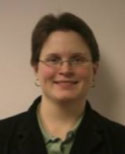
Panel A.1: Jessica Chichester, Senior Scientist, Fraunhofer CMB, Newark, Delaware
Jessica Chichester is the scientific lead and coordinator of immunology at Fraunhofer USA Center for Molecular Biotechnology. She is tasked with designing, facilitating and supervising all pre-clinical pharmacology and toxicology studies on plant-based pharmaceuticals. Her lab also focuses on characterizing the use of different adjuvants and delivery routes to improve upon the formulation of the center's vaccine candidates. Results produced by her lab have been published in peer-reviewed journals and presented at multiple scientific meetings. She obtained her Ph.D. in immunology and microbial pathogenesis from Thomas Jefferson University. Her fields of expertise include viral pathogenesis and cellular immunology.
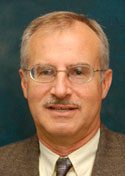
Panel A.1: Jack Gelb, Chair and Professor of Animal and Food Sciences, University of Delaware
Jack Gelb is professor and chairperson of the Department of Animal and Food Sciences in the College of Agriculture and Natural Resources at the University of Delaware. He received his B.S. and M.S. degrees from the University of Delaware and his Ph.D. from the University of Georgia. He has been on the faculty at the University of Delaware since 1979. His research and outreach activities focus on avian influenza and other respiratory viruses of poultry and birds. He also coordinates the University's avian disease diagnostic activities on the Newark and Georgetown campuses. He works closely with the agricultural sector and government agencies in the State of Delaware and the Delmarva region. In addition, Gelb works with organizations and government agencies nationally and internationally in the areas of avian and poultry health.
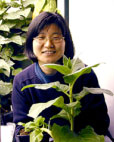
Panel A.1: Jung-Youn Lee, Associate Professor of Plant and Soil Sciences, University of Delaware
Jung-Youn Lee is an associate professor in the Department of Plant and Soil Sciences at the University of Delaware. She received her B.A. degree in horticultural sciences from Korea University, and her M.S. and Ph.D. in plant molecular and cellular biology from the University of Florida. She joined the University of Delaware in 2003. Her research focuses on elucidating how plant cells communicate through plasmodesmata, plant-unique intercellular communication.
Lee serves as an editorial board member for the Biochemical Journal and a review editor for Frontiers in Plant Physiology and chairs the Mid-Atlantic Section of the American Society of Plant Biologists.
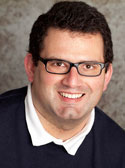
Panel A.1: Ryan Zurakowski, Assistant Professor, Electrical and Computer Engineering, University of Delaware
Ryan Zurakowski's lab applies the principles and tools of nonlinear dynamics and control to problems in biology and medicine. He and his laboratory group are working to develop mathematical models of disease processes and to analyze the dynamics using nonlinear control techniques in order to suggest novel therapeutic approaches.
Currently, his lab is exploring ways to prolong the usefulness of HAART therapy for HIV by preventing the emergence of resistant viral strains. Other systems of interest are oncolytic virus combination therapy for cancer treatment and treatment interruption scheduling for auto-immunization in early-stage HIV infection. He is also interested in more traditional control applications, including state estimator development for self-correcting munitions.
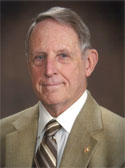
Panel A.2: Arthur Elliott, President, Biological Consultants
Arthur Elliot is an experienced senior scientist with over 45 years working in the pharmaceutical/vaccine industry with both startup biotechnology companies and multinational research development and manufacturing organizations. He has been a key leader in the development and licensing of over 10 pediatric and adult vaccines in the United States and Europe while serving in the positions of executive director of biological operations at Merck and Co. and chief operating officer and senior vice president at North American Vaccine.
Elliot founded the Biological Consulting Company in 1999 and has consulted with several companies in the pharmaceutical industry, as well as WHO, PATH, the Gates Foundation and NIH. In addition, he worked for five years in the U.S. Department of Health and Human Services (HHS) in the area of influenza pandemic preparation during the Swine Influenza Pandemic of 2008–2009. Since leaving HHS in 2011, he has served as a consultant to the U.S. Army on projects involving medical countermeasures. Elliot is the author of over 50 articles published in scientific peer-reviewed journals plus chapters in scientific books and patents for the process development of biological products.
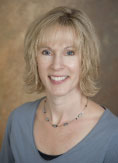
Panel A.2: Kristi Kiick, Deputy Dean, College of Engineering and Professor of Materials Science and Engineering, University of Delaware
Kristi Kiick is a professor of materials science and engineering, professor of biomedical engineering, and deputy dean of the University of Delaware College of Engineering. She holds a B.S. in chemistry from the University of Delaware and an M.S. in chemistry from the University of Georgia. After working as a research scientist at Kimberly Clark Corporation, she rejoined the academic ranks as a doctoral student and received a Ph.D. in polymer science and engineering from the University of Massachusetts Amherst, after completing her doctoral research as an NDSEG Fellow at the California Institute of Technology. She joined the UD faculty in 2001.
Kiick's current research programs are focused on combining biosynthetic techniques, chemical methods and bioinspired assembly strategies for the production of advanced multifunctional biomaterials. Kiick’s honors have included a Camille and Henry Dreyfus Foundation New Faculty Award, a Beckman Young Investigator Award, an NSF CAREER Award, a DuPont Young Professor Award and induction into the College of Fellows of the American Institute for Medical and Biological Engineering. Kiick has delivered a variety of keynote, plenary and memorial lectureships, and serves on the advisory boards of multiple international journals and research organizations. She has published over 80 articles and book chapters, and holds over 15 U.S. patents.
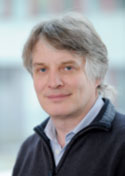
Panel A.2: Holger Ziehr, Regulatory Affairs Officer, Stada Arzneimittel AG, Division Head for Pharmaceutical Biotechnology, Fraunhofer ITEM, Braunschweig, Germany
Holger Ziehr finished his doctoral work at the technical University of Braunschweig in 1985. His graduate work was focused on the development of technical processes for the manufacture of pharmaceutically active biomolecules based on proteins and nucleic acids. With EPO, G-CSF and ß-interferon, he has developed processes for GMP-Manufacture of several biosimilar proteins. He pursued postdoctoral training in pharmaceutical science, chemical and biochemical engineering. He is currently division head at Fraunhofer ITEM and quality assurance officer and qualified person at Stada Arzneimittel AG, a German generics company.
Core components of Ziehr's work are the development and transformation of biotechnological manufacturing processes based on microbes and animal cell culture in compliance with regulatory pharmaceutical requirements. As a lecturer, he teaches a course for applied biochemistry and pharmaceutical regulatory affairs at the Technical University of Braunschweig and the Rheinisch Westfälische Technische Hochschule (RWTH) Aachen.
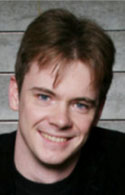
Panel A.3: Johannes Boltze, Head, Department of Cell Therapy, Fraunhofer Institute for Cell Therapy and Immunology, IZI, Leipzig, Germany
Johannes Boltze, M.D., Ph.D., heads the Department of Cell Therapy at Fraunhofer Institute for Cell Therapy and Immunology in Leipzig. The Department of Cell Therapy comprises six research groups: Immunotherapy and Oncology, Ischemia Research Unit, Experimental Imaging, Stem Cell Biology, Cognitive Genetics and Clinic-oriented Therapy Assessment. Dr. Boltze also directs two research groups at the University of Leipzig. His research interests are the development of novel diagnostic or therapeutic approaches for ischemic diseases, particularly stroke, and experimental neurosurgery. He is currently a visiting professor at the Neuroscience Center of the Massachusetts General Hospital, Harvard University.
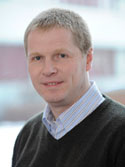
Panel A.3: Armin Braun, Head of Airway Immunology, Fraunhofer Institute of Toxicology and Experimental Medicine, ITEM, Hannover, Germany
Armin Braun's main focus is the preclinical development and evaluation of new drugs, e.g., anti-asthmatic drugs and vaccines. Clients are the major pharmaceutical and biotech companies from Europe, the U.S. and Japan. Therefore, he has extensive experience with animal models of asthma. In addition, immunotoxicology and infection models are important fields of work. Based on this knowledge, alternative in vitro models are developed, e.g., using the precision cut lung slice (PCLS) technique for testing lung toxicology and immune regulation. Immunological diagnosis in clinical studies is performed by immunohistological staining techniques using confocal microscopy, flow cytometric analysis and biomarker quantification in bronchoalveolar lavage fluid and blood. He also has a strong background in basic research and is involved in several public-funded research cooperations, e.g., with the Medical School Hannover (MHH), where he is acting as a professor. He has published more than 100 reports in international journals.
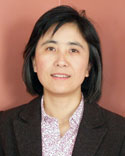
Panel A.3: Xinqiao Jia, Associate Professor of Materials Sciences and Engineering, University of Delaware
Xinqiao Jia's group is interested in developing intelligent biomaterials that closely mimic the molecular composition, biological functions, mechanical responsiveness and nanoscale organizations of the natural extracellular matrices. These novel biomaterials, combined with defined mechanical cues and biological factors, create a three-dimensional microenvironment for improved understanding of cell biology. Taking advantage of well-defined polymer chemistry and supramolecular assembly, she and her laboratory group are engineering intelligent nanoparticles for the targeted delivery and controlled release of cancer therapeutics for the treatment of childhood leukemia and prostate cancer. Combining cell biology and engineering principles, the group is actively developing methodologies for the engineering of healthy, replacement tissues such as cartilage and vocal folds, as well as pathological tissues such as tumor tissues.
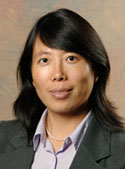
Panel A.3: Liyun Wang, Associate Professor of Mechanical Engineering, University of Delaware
Liyun Wang's current research aims to understand how biomechanical factors are involved in the physiology and pathologies in bone and cartilage. She and her laboratory group are particularly interested in how mechanical loading influences the metabolism and mechanobiology of osteocytes and chondrocytes, which are responsible for the maintenance and remodeling of bone and cartilage. Altered cellular responses to loading have been implicated in the development of osteoporosis and osteoarthritis. Despite the extensive studies at the system/tissue level as well as the in vitro cell cultures, there exists a knowledge gap on how tissue loading induces physical and biochemical signals that cells respond to. Combining small animal models, advanced imaging, mechanical loading modules, and mathematical modeling, she and her team are identifying and quantifying these cellular cues and the apparatus that the cells use to detect these signals. Her research on bone biomechanics is being funded by an NIH R01 grant and the osteoarthritis studies had been funded by an NIH COBRE program grant. Her long-term goal is to provide new strategies or targets to treat musculoskeletal diseases such as osteoporosis and osteoarthritis.
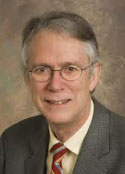
Panel B.1: Willett Kempton, Research Director, Center for Carbon-free Power Integration; Professor, College of Earth, Ocean, and Environment; and Professor, Electrical and Computer Engineering, University of Delaware
Willett Kempton leads several research teams working on electric vehicles, offshore wind power and integration of variable generation into the electric power system. Kempton pioneered vehicle-to-grid (V2G) technology. V2G vehicles provide storage for the electric power grid, absorbing excess energy when demand for power is low and returning some back to the electric grid during high-demand times. This concept is now being commercially implemented. Kempton conducts research into offshore wind turbines, focusing on resource estimations, new technology for offshore wind and the use of weather patterns to plan interconnection via long-distance transmission. He also has studied and measured public support and public opposition to offshore wind. He has extensive publications and speaks widely on all of these topics. Kempton has held research or teaching positions at Princeton University, Michigan State University and the University of California campuses at Berkeley and Irvine, prior to joining the faculty at the University of Delaware in 1992. During fall 2011, he was the Otto Mønsted Gœst Professor, Center for Electric Technology, Department of Electrical Engineering, Danish Technical University.
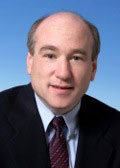
Panel B.1: John Ranieri, Vice President of DuPont Industrial Biosciences
John P. Ranieri is vice president of DuPont Industrial Biosciences. He is responsible for the development of a broad portfolio of new businesses that include renewably sourced materials, chemicals, fuels and enzyme solutions. Ranieri oversees Industrial Biosciences' M&A and its joint ventures including DuPont Tate & Lyle Bio Products Company LLC, Butamax Advanced Biofuels LLC, and Actamax businesses.
He joined DuPont in 2002 as vice president and general manager for DuPont Bio-Based Materials, which originally included only the Sorona business. During his leadership, the Bio-Based Materials business grew to include a full range of renewably sourced product offerings, including the creation of the DuPont BioFuels business. In March 2006, he was named vice president and general manager for DuPont Applied BioSciences – Energy & Specialties with responsibility for the BioFuels and Specialties businesses. He was named vice president of DuPont BioMaterials Group in October 2008. He was named to his current position in October 2011.
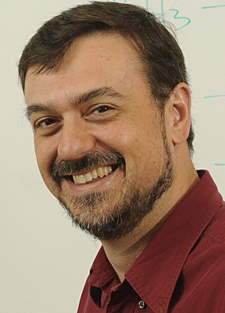
Panel B.1: Dion Vlachos, Director, Catalysis Center for Energy Innovation (CCEI), and Elizabeth Inez Kelly Professor of Chemical Engineering, University of Delaware
Dion Vlachos is the director of the Catalysis Center for Energy Innovation (CCEI), an Energy Frontier Research Center (EFRC) funded by the U.S. Department of Energy (DOE). He obtained a five-year diploma in chemical engineering from the National Technical University of Athens, Greece. He obtained his M.S. and Ph.D. from the University of Minnesota and spent a postdoctoral year at the Army High Performance Computing Research Center in Minnesota, after which he joined the University of Massachusetts as an assistant professor. He joined the faculty of the University of Delaware in 2000.
Vlachos is an AAAS Fellow and the recipient of the R.H. Wilhelm Award in Chemical Reaction Engineering from the American Institute of Chemical Engineers (AIChE), the Office of Naval Research Young Investigator Award and the National Science Foundation Career Award. He is a member of the American Institute of Chemical Engineers, the American Chemical Society, the Combustion Institute, the Catalysis Society and SIAM.
Vlachos’ main research thrust is multiscale modeling and experiments along with their application to renewable energy, catalysis and portable microchemical devices for power generation, biofuels, growth of nanomaterials and microporous thin films. He is the corresponding author of more than 250 refereed publications and has given more than 150 plenary lectures, keynote lectures and other invited talks.
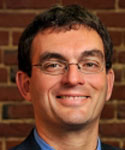
Panel B.2: Christian Hoepfner, Scientific Director, Fraunhofer USA - Center for Sustainable Energy Systems, CSE, Boston
Christian Hoepfner is the scientific director of Fraunhofer CSE and leads the Photovoltaic Technologies, Building Energy Efficiency and Distributed Electrical Energy Systems research groups. He also oversees CSE's contract research business.
Before joining Fraunhofer CSE, Hoepfner was vice president of product marketing and management at Luminus Devices, which grew from an MIT startup company to a world leader for specialty LED products. There, he was responsible for the successful commercialization of Luminus' high-power light-emitting diodes into the consumer electronics industry and for introducing energy-efficient lighting products into energy-saving markets.
Prior to this, he worked at LNL Technologies, Bandwidth Semiconductor and Spire in a wide range of roles and technology areas, including lasers, photo detectors, III-V semiconductor device design and processing, planar light guides and chemical vapor deposition. Hoepfner received his Ph.D. from the Free University Berlin, Germany, for work in thin-film photovoltaics.
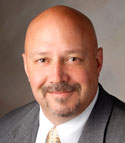
Panel B.2: Michael Mackay, Professor of Materials Sciences and Engineering, University of Delaware
Michael Mackay's group focuses on two phenomena—dispersion of nanoparticles in polymeric materials and segregation of them from the same polymer when they are in a thin film. As it turns out, a surface introduces extra forces to the thermodynamics controlling miscibility, and fine tuning the surface versus bulk phenomena allows assembly to the air interface or to the solid substrate supporting the film; of course, in a thick film, bulk phenomena occur.
Nanoparticle segregation in thin films is useful for energy applications, in particular, in the manufacture of organic-based solar cells. By controlling the segregation, or really self-assembly, solar cells can be manufactured cheaply and eventually on any substrate. However, to realize this type of device manufacture, nanoscale characterization and the interaction of nanostructure development and processing conditions are critical. In Mackay`s group, many different characterization techniques are used to understand nanostructure-property correlations in thin polymer films used to make solar cells.
Mackay's group is also interested in how nanoparticles affect the properties of bulk polymers. An initial discovery was that addition of nanoparticles to polymers can produce a viscosity decrease, a result at odds with Einstein's original prediction that particles suspended in a liquid provides a viscosity increase. Furthermore, nanoparticle miscibility in polymers was found by the group to be very unusual and at odds with contemporary thought. We believe this phenomenon is dominated by the relative size of the nanoparticle and polymer molecule to create this and other unusual effects that have been observed.
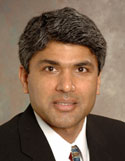
Panel B.2: Ajay Prasad, Director, Center for Fuel Cell Research, and Professor of Mechanical Engineering, University of Delaware
Ajay Prasad received his Ph.D. in mechanical engineering from Stanford University in 1989 in the area of experimental fluid mechanics and heat transfer. Subsequently, he conducted postdoctoral research at the University of Illinois at Urbana-Champaign before joining the University of Delaware in 1992. His research interests lie in the area of clean energy including fuel cells, Li-ion batteries, wind and ocean current energy, and vehicle-to-grid technology. He is also interested in energy-efficient, solar-powered buildings.
As the director of the UD Center for Fuel Cell Research, Prasad facilitates coordination among the approximately 20 UD faculty members working in this area, as well as companies involved in fuel cells and hydrogen infrastructure activities. Prasad also directs the University of Delaware Fuel Cell Bus Program whose goal is to develop and demonstrate fuel cell powered transit vehicles and hydrogen refueling stations in the State of Delaware.
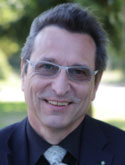
Panel B.3: Dieter Bryniok, Senior Scientist and Research Group Leader, Environmental Biotechnology and Biochemical Engineering at Fraunhofer Institute for Interfacial Engineering and Biotechnology, IGB, Stuttgart, Germany
Dieter Bryniok is a senior scientist and research group leader in the department of Environmental Biotechnology and Biochemical Engineering UBT of the institute and acts as a senior project manager in the fields of biodegradation of hazardous substances, water management, bio-energy and sustainable development.
Bryniok graduated as a microbiologist in 1982 and earned his doctoral degree at the University of Tübingen/Germany in 1988 with a doctoral thesis about immuno-enzymatic detection of methanogens in biogas-producing microbial consortia. He has extensive expertise in biodegradation of hazardous and recalcitrant compounds, environmental technology, wastewater treatment, soil and groundwater remediation and waste gas treatment. His current main research areas are process development especially for industrial wastewater treatment and industrial waste management, biogas production and utilization, especially from industrial organic wastes and wastewaters, bio-refinery processes and sustainable resource management. From 1995–2001, he was head of the Fraunhofer Demonstration Center for Process Integrated Environmental Technology. Since 2007, he has been managing director of the Fraunhofer Water Systems Alliance, a network of 10 Fraunhofer Institutes working in the field of water supply and wastewater management. Since 2012, he holds a professorship in environmental biotechnology at the newly founded Hamm-Lippstadt University for Applied Sciences in Hamm, Germany.
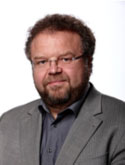
Panel B.3: Andreas Hornung, Director, European Bioenergy Research Institute (EBRI), Aston University, Birmingham, United Kingdom
Andreas Hornung is an internationally recognized leader in the field of bio-energy and has been instrumental in driving forward the groundbreaking research in that area. He is overseeing the development of new £16.5m engineering laboratories at Aston University to showcase and develop renewable low-carbon technologies including a biomass-fueled power plant. The facility will include giant photo bioreactors harnessing algae, and a 0.4MWel small-scale industrial power plant fueled by biomass. The plant will generate heat and power from biomass using algae, sewage sludge, wood and agricultural waste as sources of fuel. It will also generate biomass by-products including hydrogen power for low-carbon vehicles or fuel cells and biochar for use as an agricultural fertilizer and a source for decentralized hydrogen production. Hornung also has been appointed as Green Leader in the West Midlands. The initiative addresses the leadership gap in the low-carbon economy. It celebrates and promotes some of the most influential people driving the agenda.
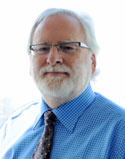
Panel B.3: Wolfgang Schuch, General Manager, Fraunhofer Chile Research – Centre of Systems Biotechnology
Wolfgang Schuch is general manager of Fraunhofer Chile Research – Centre of Systems Biotechnology (FCR), a wholly-owned subsidiary of the Fraunhofer Gesellschaft of Germany. The purpose of FCR is to contribute to innovation and technology transfer in Chile and South America and bring the Fraunhofer model of innovation to the region. The centre runs projects in aquaculture, nanotechnology and renewable energies.
Schuch has managed his own biotechnology consultancy company, was chairman of the board of the Plant Biotechnology Association of British Columbia, was co-founder of a small company producing equipment for the extraction of rubber from rubber-bearing plants and held senior management positions in CellfFor, a technology start-up company. Prior to this, he held senior science and technology positions in Syngenta and its predecessor companies where he was involved in technology development and taking ideas from basic research to the market.
Schuch has taught and conducted basic research at several universities in the United Kingdom and Sweden as a visiting professor. He has published over 95 papers in peer-reviewed journals and 50 papers in books and other forms of communications. He is named inventor on 28 patents. Schuch obtained his Ph.D. from the University of Edinburgh in Scotland and graduated from Tübingen University in Germany with a degree in genetics.
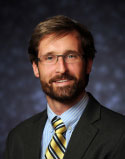
Panel B.3: Bryan Tracy, CEO & Lead Scientist, Elcriton Inc.
Bryan Tracy has served the lead role in raising funds and managing Elcriton's mission to produce commercial renewable, biochemical technologies that supplant fossil fuel consumption, reduce green house gas emissions and accelerate the expansion of cleantech industries. Specifically, he led a >$1.7 million seed round for biobutanol development, which largely consisted of Small Business Innovation Research (SBIR) Grants and an Israel-U.S. Binational Industrial Research and Development Energy Grant. During his tenure, Elcriton has licensed first-generation technologies to the world's largest biobutanol producer, expanded product offerings through collaborations with top tier chemical companies and entered discussions to jointly scale a next-generation biobutanol production process.
Tracy has nearly 12 years of experience in genetic engineering and bioprocess development in both academic and industrial settings. He is a primary inventor on multiple patent applications, an author on numerous scientific publications, a guest lecturer at the University of Delaware, and a board member for the Delaware Sustainable Chemistry Alliance. Most recently, he was honored with acceptance into the 2012 class of fellows for Leadership Delaware.
During his Ph.D. studies, Tracy was a Cabell Fellow and NIH Predoctoral Biotechnology Training Fellow. During his undergraduate studies, he worked in the Optimization Department at Novozymes N/A where he helped develop a novel biomass separation process for fungal hosts. He received his B.S. in Chemical Engineering (2004) from North Carolina State University and a Ph.D. in Chemical and Biological Engineering (2009) from Northwestern University.
Fraunhofer Delaware Technology Summit Chairs
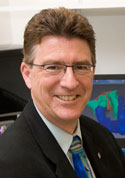
Karl Steiner, Senior Associate Provost for Research Development, Research Office; Professor, Electrical and Computer Engineering; and Professor, Biomedical Engineering Program, University of Delaware
Karl Steiner received his engineering doctorate in mechanical engineering from the Institute for Composite Materials (IVW) at the University of Kaiserslautern in Germany, his master's degree in electrical and computer engineering from the University of Delaware and his undergraduate degree in electrical engineering and information technologies at the FH Braunschweig/Wolfenbüttel, Germany.
Steiner served as the founding associate director of the Delaware Biotechnology Institute (DBI) from 2000 to 2008 after serving as the executive director of the University of Delaware Center for Composite Materials (CCM) from 1996 to 1999. From 1996 to 1998, he was also the founding executive director of the Fraunhofer USA – Resource Center Delaware. This initial center has since evolved into the Fraunhofer Center for Molecular Biotechnology.
Currently, Steiner is the principal investigator of the NIH-NIGMS funded IDeA Network of Biomedical Research Excellence (Delaware INBRE), a statewide partnership among Delaware's academic and medical institutions, to develop a competitive and sustainable biomedical research capability. He is also a co-principal investigator for the NSF-EPSCoR Research Infrastructure Improvement program, with a focus on building a research and education infrastructure to enhance environmental science and its application in Delaware. Steiner has been instrumental in securing over $100 million in externally funded programs for University and statewide initiatives. His current research interests are in the area of interactive immersive visualization methodologies for the life sciences, primarily in complex multi-variant data analysis and in biomedical imaging with a focus on virtual surgery simulations. Steiner has contributed over 75 technical publications to international journals and conference proceedings.

Vidadi Yusibov, Executive Director, Fraunhofer Center for Molecular Biotechnology, Delaware; and Research Professor, Biological Sciences, University of Delaware
Vidadi Yusibov, the executive director of Fraunhofer USA Center for Molecular Biotechnology, is responsible for the oversight of all plant-based vaccine and therapeutics development programs. He has been involved in different aspects of plant molecular biology, including molecular farming, with a major focus on transgenic plants and plant viruses since 1985. He is recognized nationally and internationally as an expert in plant-based vaccine development. Yusibov is a research professor in biological sciences at the University of Delaware. Before joining Fraunhofer USA, Yusibov was an assistant professor at Thomas Jefferson University.
His research has focused on the development of plant virus-based expression systems that can be used for different applications, including production and delivery of vaccine antigens. He was involved in the development of different expression platforms, including the thermotool-based system that is proposed here as a production and delivery tool for vaccine candidates. While at Thomas Jefferson University, Yusibov developed a plant virus-based experimental vaccine against the rabies virus, which was approved by the FDA for human trials.



